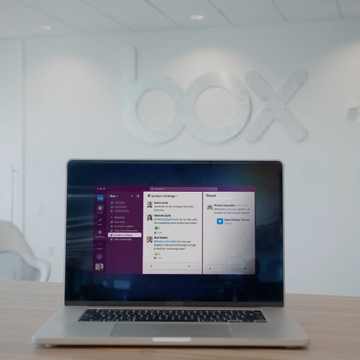With a roster of more than one million construction projects worldwide, it’s clear that Procore, the software platform custom-built for the construction industry, is breaking ground on a global scale. Procore gives construction crews real-time access to critical instructions, aligning everyone on the job site for faster, more efficient teamwork, which raises standards and reduces risks.
Building a solution that improves communication across a construction company, from the field to the office – saving customers precious time and money – wouldn’t be possible without reinforcement from Procore’s aligned, robust IT team. That’s why Procore’s IT and service teams rely on Slack, the channel-based messaging platform – along with key Atlassian integrations – to support its service teams and keep the engines humming behind the scenes.
Setting up a unified service desk in Slack with the Jira Cloud integration
When Shane Redman took the helm as director of information security and engineering at Procore, his first priority was steering Procore’s business units away from email and onto an enterprise service management platform. With its powerful workflows and project tracking, Atlassian’s Jira Cloud integration for Slack proved to be the optimal solution, saving valuable time by reducing context switching and automating routine tasks.
Additionally, Redman emphasised that the Jira Cloud integration has given him increased visibility into his team’s overall productivity. ‘Setting up a centralised place where you can easily see metrics can help you maintain manageable workloads for your teammates,’ Redman says.
Jira’s ticketing solution also enables teams across Procore to respond to employee requests directly from Slack without needing a separate system or interface. Any time a ticket is submitted, teammates see a notification in their designated Slack channel. As teammates make progress, they can attach their conversations to the Jira ticket for easy reference.

Procore’s human resources team also creates custom checklists in Jira for streamlining employee life cycle management, from onboarding to offboarding, then uses Slack to manage them. An employee life cycle refers to the time that an employee spends at an organisation, covering the recruitment process to day-to-day performance to offboarding. When an employee is either onboarded or offboarded, automation sends a Jira ticket into a designated Slack channel. Human resources can also easily disconnect or disable users with custom Slack integrations.
‘Now, employee life cycle management is completely automated and takes place in Slack 100%,’ Redman says.

‘Slack drives cross-functional visibility. Instead of working in a reactive and siloed atmosphere, we’re equipped to take a proactive approach and collaborate in real time with an evolving, intelligent platform.’
Building a robust event response system
Slack is integral to the day-to-day operations of Procore: keeping the business running and allowing IT professionals to loop in necessary parties during projects and events. ‘Slack is very much at the centre of our universe,’ says Redman. ‘Being able to use a channel in Slack to communicate with our teams quickly, versus searching a thread of emails, is invaluable when working in a fast-paced environment.’
Kelli Bonin, Manager of IT Network and Security Operations at Procore, explains that the Jira integration allows her teammates to keep stakeholders in the loop as events are happening. Essentially, the on-call incident response team communicates in specific channels while another team member summarises the business impact and communicates with stakeholders in a separate channel.
The incident response team uses Jira to pipe real-time updates into Slack. So as the team makes progress, it can push Jira tickets directly from Slack into its service desk. The Opsgenie integration for eventing works together with communication automation to push Slack updates via Workato to targeted Slack channels.
Bonin emphasised that these integrations foster openness and visibility between teammates and leadership. And transparency is the secret weapon driving the IT team’s success. That’s because discussing new processes and procedures in Slack channels keeps everyone in the know, generating more cohesive sprints.
‘Moving critical processes fully into Slack channels has created more openness,’ says Redman. ‘Even the most quiet voices in the room feel comfortable making suggestions and asking questions in Slack.’
Without robust IT operations, enterprises such as Procore wouldn’t be able to fulfil their ambitious missions to drive global change. For Procore, Slack is just the right tool to keep teammates and leadership aligned by encouraging transparency, collaboration and speedy communication.
‘Slack helps us keep a pulse on our service tests, so we always have the information we need right at our fingertips,’ Bonin says.
















